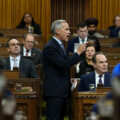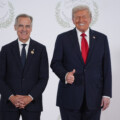The Canadian housing market is in turmoil. Supply has lagged far behind demand as the population surges. This imbalance has led to soaring property prices, high rents, and increased homelessness.
The situation calls for urgent action, and while long-term solutions, like building more homes, are essential, policymakers are also deploying short-term measures—most notably, vacant property taxes. As these policies are becoming increasingly popular, the potential impact and drawbacks of such taxes call for careful examination.
My new C.D. Howe Institute publication with Enrico Miglino aims to shed further light on this matter by using Vancouver’s empty homes tax as a case study. Implemented in 2017, Vancouver’s vacant home tax was originally set at 1 percent and has now risen to 3 percent on homes that are unoccupied for more than 180 days in a year. We examined this tax’s impact on the key dimensions that animate the policy debate: housing availability, affordability, and new construction.
To do this, we compared neighbourhoods right next to one of the city boundaries. On one side of Boundary Road, within Vancouver, homes are subject to the tax, while just across the road in Burnaby, they are not. By looking at these two similar areas before and after the tax was introduced, we were able to retrieve what the true impact of the tax has been.
Our results indicate that while the tax significantly increased housing availability, it did not spur new constructions. In fact, the tax lowered the vacancy rate by 1.5 percentage points, which translates to 5,355 fewer vacant units in Vancouver from 2016 to 2021, without affecting the number of new dwellings being built.
The other side of the coin, however, is that despite its positive impact on housing availability, the empty-homes tax has not produced the desired effect on rental prices.
Contrary to what economic theory would suggest—that an increase in housing supply should lead to a reduction in rents—the average rent in Vancouver has remained stable. This outcome raises questions about the broader effectiveness of the tax in addressing the issue of housing affordability.
One possible explanation for this lack of impact on rental prices is that Vancouver, as a high-demand “superstar city,” may be caught in a bad equilibrium where landlords are confident that their rental rates are safe, regardless of any increased supply. Additionally, landlords could pre-emptively raise rents to cover potential future costs associated with the tax, thus passing these costs onto their current tenants.
These findings highlight both the successes and limitations of Vancouver’s empty-homes tax. If the tax has effectively reduced the number of vacant homes, improving availability, it also seems to have had no effect on affordability.
The empty-homes tax alone is clearly insufficient to address the full spectrum of challenges facing the housing market, meaning a broader strategy is needed.
Supply-side measures—such as setting mandatory municipal housing construction targets and reforming upfront development charges on new housing—could play a vital role. Furthermore, initiatives to improve access to affordable housing and support increased housing density could help better balance supply and demand. These are all fundamental steps in creating a more resilient housing market that ensures that housing remains accessible and affordable for all Canadians despite the growing demand.








